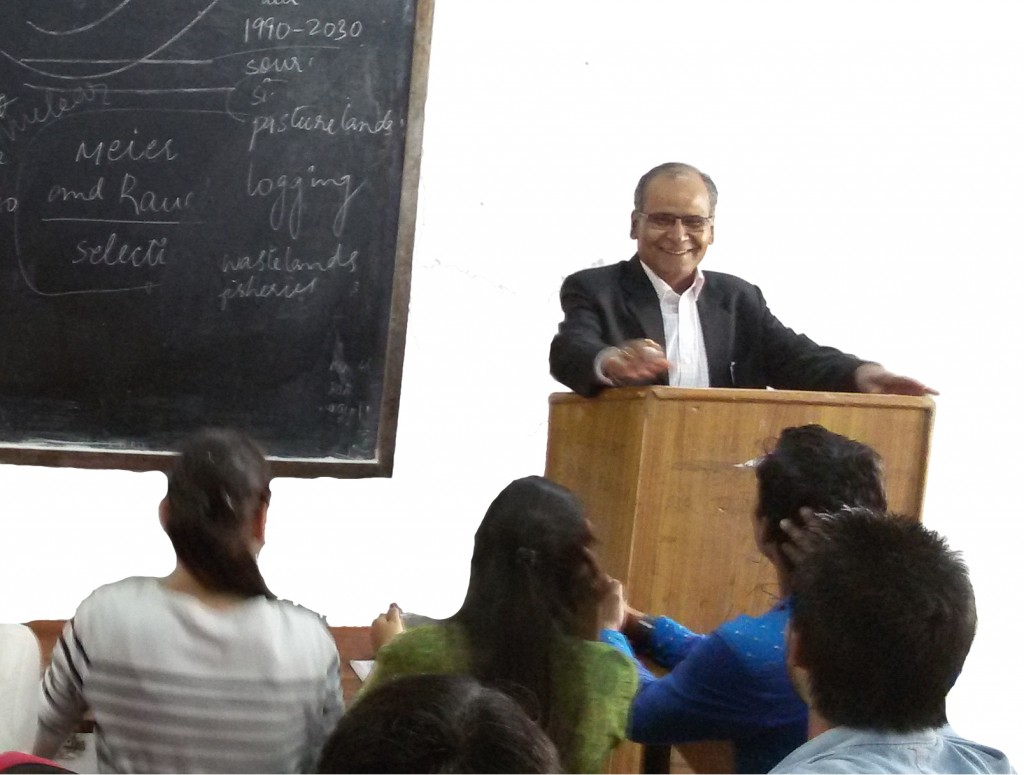
Did I ever want to change the world? Often, but it is difficult as its basic, prior requirement is to change the self.
Indra Mohan Jha, Associate Professor at ARSD College, University of Delhi, obtained his doctoral degree from School of International Studies, JNU, New Delhi. After a brief stint at the The Indian Express, he was associated for some time with the South Asian Service Industries Forum and Centre for Peace Studies in Delhi. His areas of specialisation are international relations in general and United Nations, Regional Organisations, India’s Foreign Policy, Human Rights, Terrorism, Gandhism and its application to study the problems of peace and conflict. Prof. Jha is the author of the book, SAARC: The Road Ahead. Currently, he is working on an innovation research project titled Challenges of Contemporary India: A Gandhian Alternative.
What sort of formal education is an absolute essential for your profession? Also, could you share with us the kind of internship or experience that would be helpful for a young person considering this line of work?
For university teaching, the minimum qualification is a Master’s degree. Further, one needs to go for an MPhil and a PhD.
If you simply had to draft that elevator pitch for your profession, what would it be?
I would say teaching is a royal profession. Because royalty means that you are the master, you are free from narrow barriers and your ideas have wings to fly.
From the point of view of market considerations, it is a well-paid job. It has leaves, other facilities and of course, job satisfaction that comes from working with young boys and girls. So many from the world of teaching have reached the top – Manmohan Singh, Amartya Sen, and Henry Kissinger, to name just a few. However, to be listed among them demands discipline, dedication and determination.
I would say teaching is a royal profession. Because royalty means that you are the master, you are free from narrow barriers and your ideas have wings to fly.
So many from the world of teaching have reached the top – Manmohan Singh, Amartya Sen, and Henry Kissinger, to name just a few. However, to be listed among them demands discipline, dedication and determination.
What do you do when you are stuck with a problem?
I consult the major references in my area of study.
When we’re in school, we’re told cheating is bad – ‘Don’t talk to each other, don’t discuss.’ And then as we come out of it, we begin to realize that there’s something called “collaborative thinking” and it’s not bad! What’s your opinion?
 Cheating is always bad and collaborative thinking is good as it sharpens the reasoning capabilities.
Cheating is always bad and collaborative thinking is good as it sharpens the reasoning capabilities.
Did you ever want to change the world?
Often, but it is difficult as its basic, prior requirement is to change the self.
What would your advice be to a young person at the start of his or her career and confused about pursuing passion versus being pragmatic?
It is pragmatic to have passion to succeed. Without passion, one cannot succeed.
 What is the kind of supplementary informal learning that will give you that edge on this job?
What is the kind of supplementary informal learning that will give you that edge on this job?
The use of information technology as a resource is important. I study magazines, books and online resources.
What is most rewarding about your job?
The satisfaction of playing a role in the future of the next generation.
What’s your advice for a resume that’s just about to enter circulation?
A resume is an attempt at self-advertisement. Hence, it should highlight one’s strengths, such as good grades, academic institutions, referees and research publications in distinguished journals. In this field, recruiters look for people with a scholastic bent of mind. Never mention bad results or any breaks you took from the stream of study you were pursuing.
How does one network in the beginning to get that initial presence felt, in this profession?
By publishing and participating in workshops, seminars and conferences.